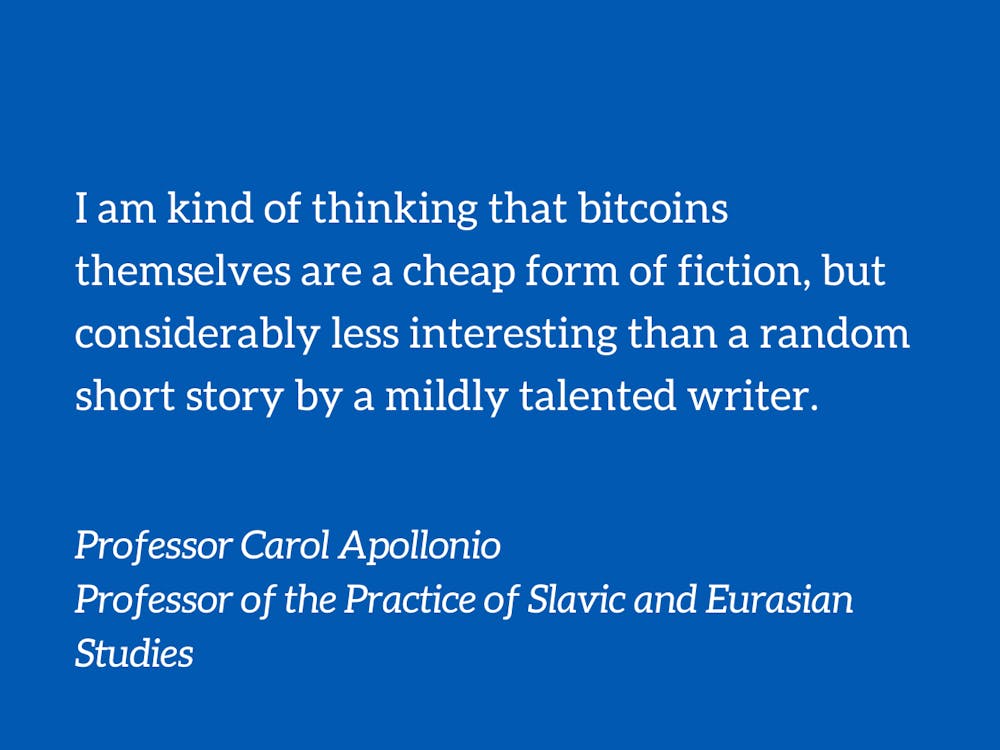“I’m very skeptical of books. I don’t want to say no book is ever worth reading, but I actually do believe something pretty close to that...I think, if you wrote a book, you f—ed up, and it should have been a six-paragraph blog post.” — Sam Bankman-Fried (skeptical of books).
It’s certainly true that reading books can slow you down. Even the non-fiction ones have a fuzzy aspect to them. I’m guessing, though, that the real target here is fiction. Why on earth would you waste time reading stuff that is made up? Will reading stories get you a job someday? Help you create a cure for a terrible disease? Bring world peace?
OK, all right, the answer is no.
Not all that long ago, colleges used to advertise themselves with photos of attractive, well-groomed students sprawled on sunlit quads reading books. Now google around and you’ll find the exact same photos, only with some fashion updates and with laptops photoshopped in for the books. Go into the library and they (sorry you) are all in there hunched over laptops. No one is reading a book. A couple of years ago I had a student who wasn’t interested in reading actual book-books. I bribed her: I told her I’d give her a 100 on a daily quiz if she would bring a book from Perkins Library, any book whatsoever, to class the next day. She did not, and would not, not then or the next week either or ever.
There was a young person in my life not so long ago. First time he saw my bookshelves he locked eyes on Victor Hugo’s "Les Misérables." The book is massive. Between you and me, there’s an entire world packed into that book, and I’ve spent many happy hours in there. Anyway, this young guest of mine looked at it with such longing that I gave it to him to keep.
“You’re going to love it!” I said.
“Oh,” he replied, “I’m going to cut out the insides and make it into a secret storage box.” Reminded me of when Restoration Hardware was selling book-like boxes with beige covers for interior décor that you could buy and stack up artfully in your home. No pages inside. They cost more than real books! Now when I see shelves lined with books I always wonder if there’s anything inside them instead of words — jewelry, maybe, Treasury bonds, small firearms, bundles of cash, crypto codes or even, as fictional Russian con-man Ostap Bender would say, “the key to the apartment where all the money is” (here is the phrase in Russian).
One time I worked as an interpreter for a group of Russian furniture makers who were attending the High Point Furniture Fair (look it up guys, it’s in your neighborhood). Showroom after showroom after showroom. All they could ask was, “Where are the bookcases?” The answer? Not in High Point.
Disclaimer: I am not fetishizing physical books. I get it that people read e-books, and I do too. I even force my students to read e-texts on Canvas! It doesn’t matter; I’m pretty sure that Sam Bankman-Fried wasn’t talking about physical books. He was talking about reading anything that was not some kind of crypto-instruction manual, or, say, a six-paragraph blog post about how to make money out of air and lies.
So now go read Dostoevsky’s "Notes from the Dead House," a fictionalized memoir of four years the writer spent in what he called “enforced communal living” (Siberian hard-labor prison). The Russian for that phrase, for the curious, is related to the Russian word for dormitory, so some aspects of his experience might have been like yours in Duke dorms.
Or, as my Russian lit bros will suggest, like the human condition itself: entrapment, against our will, in a fallen, sinful world.
One day I had to send a stack of Dostoevsky magnets to a colleague in Chicago. (Yes, that is correct, Dostoevsky magnets. I made them.) I went to the UPS on Ninth St., and the guy behind the counter said, “Wow, for such a small box, this sure is heavy. What’s in there?”, and naturally I said, “Dostoevsky magnets.” And he goes, “Really? That’s so cool! There was a time when I did nothing but read Dostoevsky books and talk about them with my friends.” Excited, I asked, “When was that?”, and he said, “When I was locked up in prison. There wasn’t much else for us to do.”
OK, I’m almost done.
The best way to get inside someone else’s head is to read a good work of fiction. Naturally, given that we’re limited to cold facts here, I’m not able to get inside the head of a felon who stole billions of dollars (uh, cryptocurrency) from trustful investors and used it to buy fancy stuff, including politicians, claiming that it was all for some imaginary future charitable enterprise. I am kind of thinking that bitcoins themselves are a cheap form of fiction, but considerably less interesting than a random short story by a mildly talented writer.
I’m hoping that someone will write this story.
All that aside, it seems clear that at least one non-reading crook will spend the rest of his life behind bars. Just idly I’m wondering if, like so many others in a state of non-freedom, he might plunge into such despair that he might crack open a book. A real one.
Reading fiction might not earn you a lot of money, Sam. But it will set you free.
Professor Carol Apollonio has been teaching Russian literature at Duke for 40 years, and this is her final semester. Her column, "Final Rants from the Podium," typically runs on alternate Wednesdays.
Get The Chronicle straight to your inbox
Signup for our weekly newsletter. Cancel at any time.

